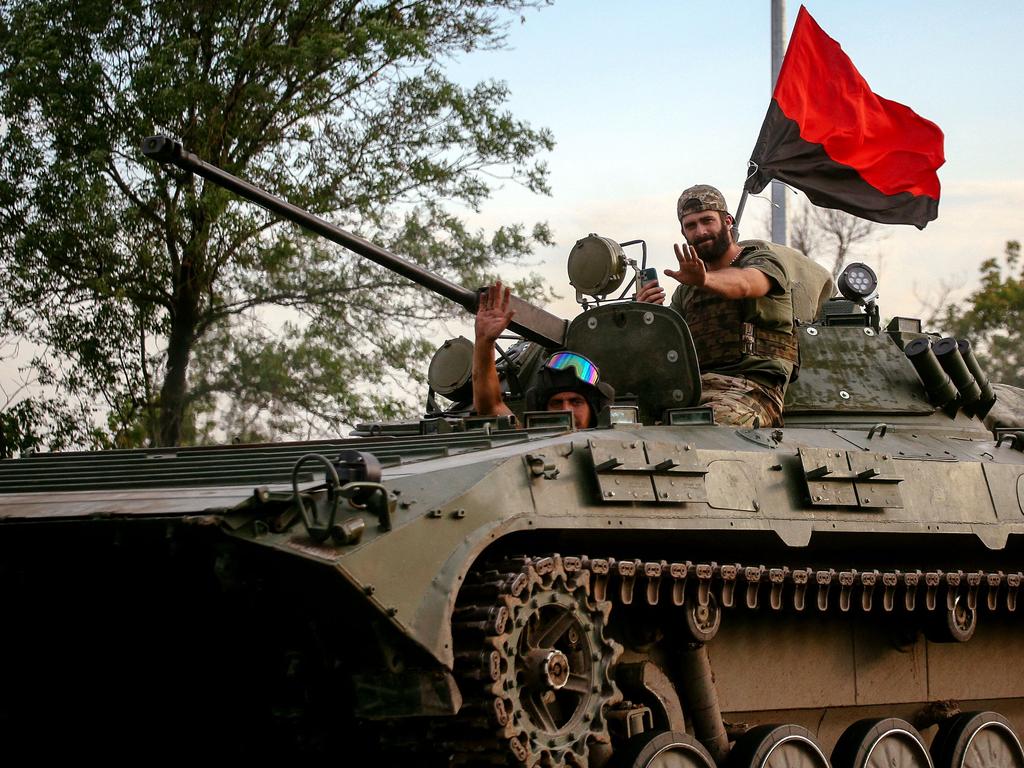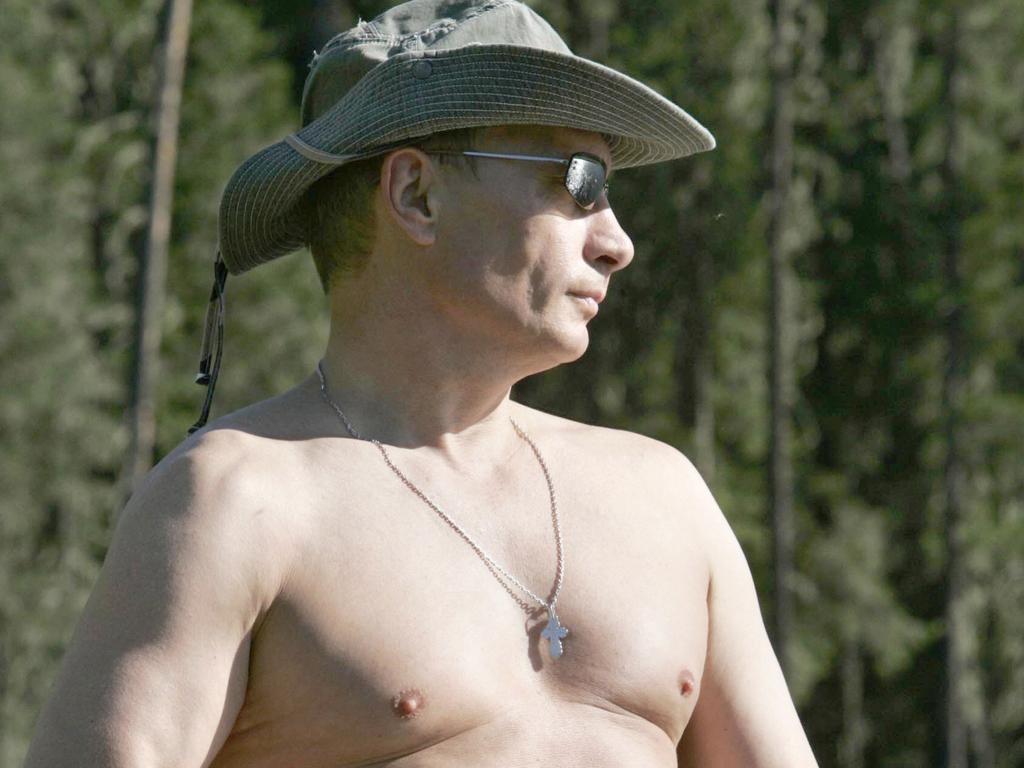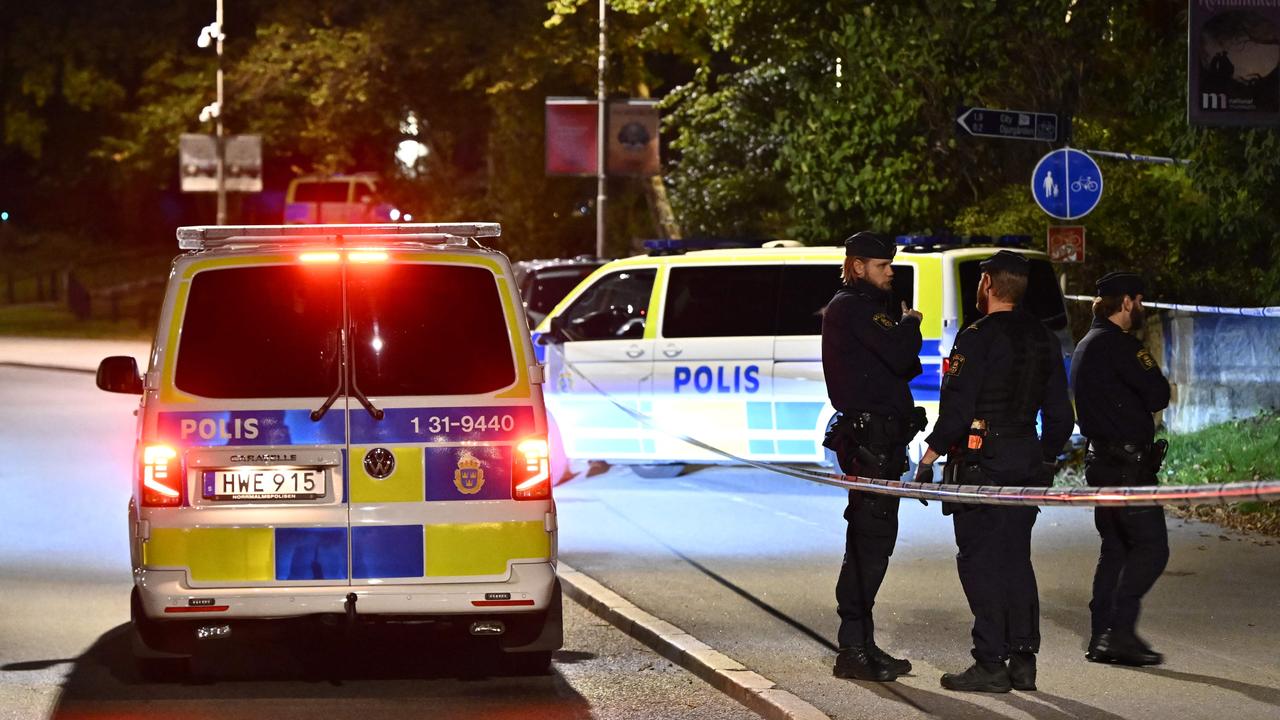‘I drop the bomb, two Russians die. I feel great doing this’
Meet the head of Ukraine’s athletics federation who is part of a special drone unit that drops bombs on Russian tanks and troops. Yevhen Pronin has an extraordinary story to tell.
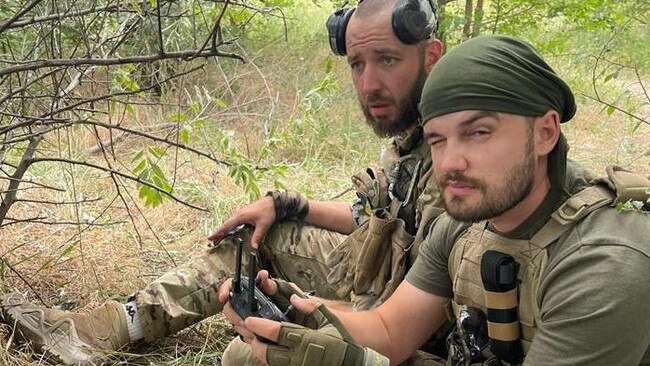
Yevhen Pronin pulls out his phone to play a video. Shot from the air, it shows a bomb striking the corner of an unmanned tank that is propelled forward by the force of the explosion, crushing two Russian soldiers. “They were killed,” he says. “I drop the bomb like basketball.”
Pronin is a member of a drone team that has proved so effective during the war in Ukraine that the Russians have put a price on the heads of his unit. Take any one of them alive, Ukrainian security services have heard the Russians saying, and the troops will receive either extra money or a few days off from the front line.
But these courageous men who form the “Tactical Busters”, who are sometimes operating their drones little more than 100 metres from advancing Russian forces, are not professional soldiers. “Four of us are lawyers and two work in IT,” says Pronin, who also happens to be the acting president of Ukraine’s national athletics federation.
As sports interviews go, this is pretty damn extraordinary. Pronin, 31, agrees to meet The Times in a hospitality area during the recent World Championships in Eugene, Oregon, and talks about how he plans to return to his unit before resuming his presidential duties at the European Championships in Munich, which begin today (Monday).
Perhaps the most impressive thing about him is how calm and measured he is in telling his story. “It is not amazing, it is normal,” he says, when it is anything but.
He explains how he will fly back to Warsaw in Poland, collect his car and then drive to Ukraine, where he will change out of the smart clothes he is wearing now and back into his uniform. “I will collect my weapons and the Audi will change to a military pick-up,” he says. He will embark on another three-week tour of duty before a brief break to lead his nation’s athletes in Bavaria, delivering yet another message of defiance to Vladimir Putin.
Before the Russian invasion, life was good. Pronin was running a successful law firm in Kyiv, having spent some time studying in France.
“My French is better than my English,” he says. He also had his role in sport and a nice home with his fiancee, the journalist Ramina Eshakzai. Their apartment building is now occupied by the military. For the first month of the war, his fiancee and his sister lived in the underground car park beneath their building. Eventually, he was able to escort them to safety.
“In March they leave Ukraine and go to Dresden and Vienna,” he says. “And then I collected my friends and we go to the military position.
“When war started on February 24, I choose something that a lot of boys and men in Ukraine choose - I signed a contract and became a soldier in the Ukrainian army.
“I had no experience. But I was ready emotionally. Emotionally, I’m in a stable place. On February 25, I was in a bad situation. The Russians were ten minutes from my home and I remember my girlfriend crying. But then I opened President Zelensky’s Instagram and he said we will not lay down our weapons. He is amazing. I think every Ukrainian decided then that we start fighting.”
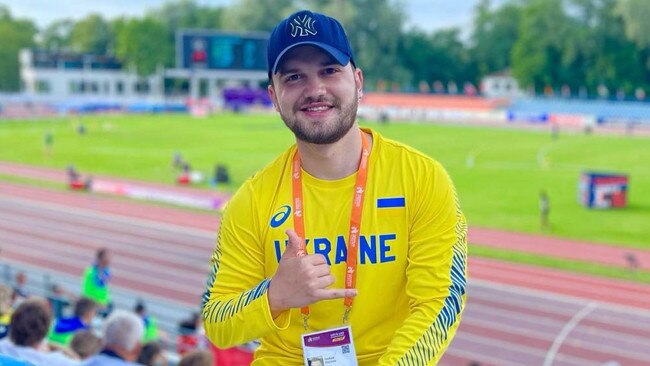
The youngest president of any national athletics federation grew up playing video games and had flown drones for fun.
“I have some experience with drones, so I asked my military leader,” he says. “I said, ‘I can do something with guns, of course. But I think I would be a good operator of a drone.’ Of course we get some courses, because when you are on the front line you have to know how to use the weapons. But I do two types of work - reconnaissance and using drones with the bombs.”
He displays not a hint of concern for his own safety even if he recognises the obvious danger. “The Russian artillery can kill you in one second so you must have a lot of experience; how to take cover and also how to run,” he says. “My cousin, a soldier, was killed.
“The distance between us and the Russian soldiers is usually between 2km and 4km. Although when we were working in the north of Kyiv, we were 100m or 200m away; very close.
“We drop bombs, not just on Russian tanks but Russian cars, and on houses where they are situated. We have some small bombs, maybe 300 grams. It’s impossible to crash a tank. You can only kill soldiers. You find the position of the soldiers.”
It is then, however, that he shows me his video. “Some of the bombs have great power,” he says. “Two Russian soldiers here, so I drop the bomb here. The machine moves here and crushes them, so they died.” How does he feel about that? “I feel great because I am doing this for my country,” he says. “If we do not kill them, they can kill our children, they can kill us. Of course, I’m not a killer in real life. It’s not a great experience but I think it is a chance.
“We’ve had a lot of problems with Russia over many years. My parents are scared, because they grew up as part of the Soviet Union. For our generation this is a chance.”
Exactly how effective his unit has been, he is reluctant to say. “It’s confidential,” he says. “But it’s a lot. A lot of tanks, a lot of cars, a lot of Russians. I don’t know exactly.
“Our security service every day hear the Russians; this dialogue talking about our group. We hear them say ‘f***ing drone team’. And they say to their soldiers, if they can catch one of us alive, they either give them some money or some days off. It’s not a big prize for us!
“They know us because all of us are on Instagram. Of course we are careful not to reveal our position.”
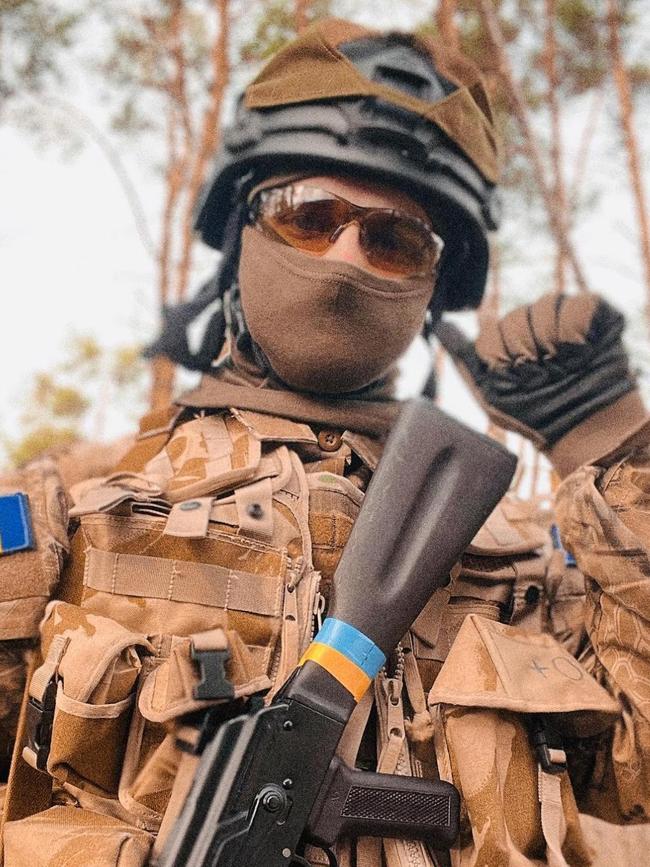
On his personal Instagram page, which boasts close to 40,000 followers, Pronin posts photographs and videos of his unit.
“It’s propaganda,” he says. “It’s a new type of war. Social media is very powerful. Everybody is doing it. When the first rocket hit Kyiv I did a video for my subscribers. I got in my car and drove around the city. I said, ‘Everything is OK.’ ”
Sport provides another platform. “I will try to go to Munich,” he says. “My military leadership understand I am the acting president. They understand I can do some interviews. It is the last competition of the year and they know it sends out a powerful message when I am here and our athletes are here.”
Other prominent figures from Ukrainian sport are doing their bit, not least those from the boxing world. “Oleksandr Usyk stayed in Ukraine,” Pronin says. “He went to the military on the first day and got weapons. He wanted to stay in Ukraine. My girlfriend speaks with his wife.”
Usyk has now left, the view being that it was more important for the fighter to return to the ring. He faces Anthony Joshua on Saturday. “Everybody in Ukraine tells him: ‘You are a big champion, you must show the Ukrainian flag to the world,’ ” Pronin says. “It’s a big message.
“The Klitschkos [Wladimir and Vitali, the former boxers] and are big champions for us. I know Vitali as the mayor of Kyiv and as a big champion.
“Two years ago, we lost our dog near Wladimir’s house and I was searching for a camera. Somebody gave me Wladimir’s number. I called him and he said, ‘OK, no problems.’ He went to his helicopter, he flew back to his house. He called me, I met with him and he sat with me for 40 minutes, searching on the camera for my dog. We didn’t find the dog. It was a small dog.”
Not everyone has impressed Pronin, however. Sergey Bubka is perhaps the biggest name in Ukrainian track and field, and the former pole vaulter now serves as the head of his country’s National Olympic Committee, has a seat on the IOC and is the vice-president, beneath Lord Coe, of World Athletics.
But Pronin says Bubka, a former Olympic and world champion, made no time to visit Ukraine’s athletes when he was in Eugene. The Times has asked Bubka why. As yet, there has been no response from the 58-year-old.
“He was here for two days but he didn’t meet with our team,” Pronin says. “Seb [Coe] met with our team. I don’t understand Sergey. I don’t understand his position.
“I respect him as a great sportsman but I don’t respect him as the president of the National Olympic Committee and as an official now.
“He is vice-president of World Athletics. When the war started, he said nothing. Of course, the National Olympic Committee website says it is Russian aggression, it’s war. But he says nothing about the war.
“A lot of sportsmen are dying now in Ukraine. Russian soldiers kill a lot of children. I think more than five athletes have died in this war. A lot of stadiums and sports areas were crushed by Russians.
“I met him at the official dinner in the evening. I asked, ‘How are you?’ He answered, ‘Fine.’ He asked about our team. I met Seb at breakfast and he asked, ‘Did Sergey meet his team?’ I said, ‘No.’ Seb asked if he could meet with the Ukrainian team. The president of European Athletics also met the team.”
For the athletes, explains Pronin, this was important. “They were so happy,” he says. “They cannot see their parents for six months.
“Our athletes have been across all of Europe. When the war started, I think 20 presidents from national federations from foreign countries called me to ask how they could help. Sebastian Coe called me on FaceTime; he was shocked as I was in military uniform.
“They all asked how they could help me. All of them helped with relocation of our athletes. We relocated all of them and many children too.”
He hopes to lead them again in Munich, before then rejoining his band of brothers on the front line.
The Times

